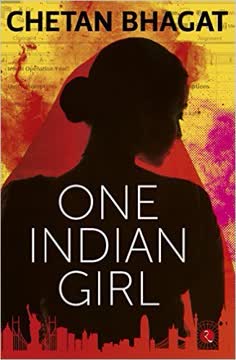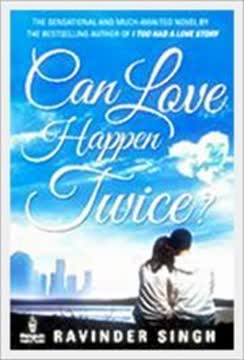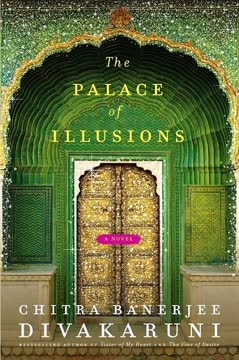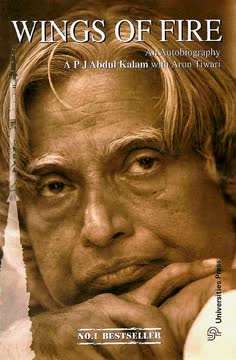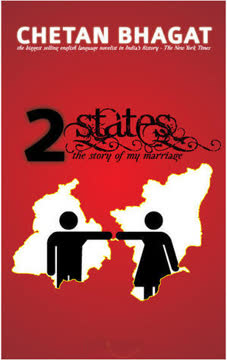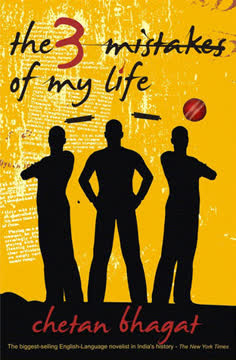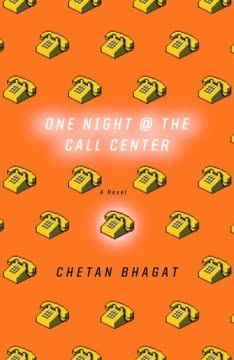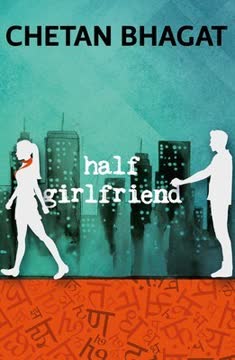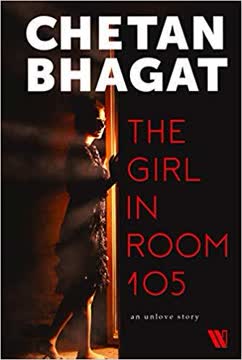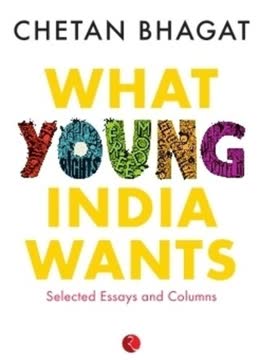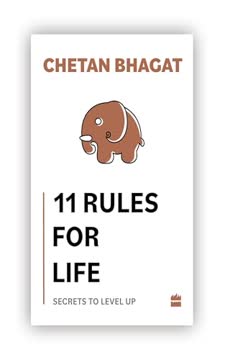Plot Summary
Goa Wedding Chaos
Radhika Mehta, a high-achieving investment banker, is in Goa for her grand destination wedding to Brijesh Gulati. The Mehta and Gulati families are embroiled in the usual Indian wedding chaos—room shortages, family politics, and gendered expectations. Radhika, the bride, is expected to adjust, look beautiful, and not question traditions. But beneath the surface, she is restless, unable to sleep, and questioning the very foundation of her impending marriage. The wedding is not just a union of two people but a collision of family expectations, cultural norms, and personal anxieties. Radhika's internal monologue reveals her as a woman caught between her own ambitions and the roles society expects her to play.
The Bride's Dilemma
As the wedding festivities begin, Radhika is overwhelmed by the logistics and the emotional weight of her decision. She reflects on her upbringing in Delhi, her academic achievements, and her journey to becoming a vice president at Goldman Sachs. Despite her success, she feels the constant pressure of not being "likeable" because she is opinionated, successful, and sexually experienced. Her family's traditional mindset clashes with her modern values, and she is haunted by the feeling that she is not enough—neither the "good Indian girl" nor the perfect daughter. The wedding becomes a metaphor for the larger struggle of Indian women: to be themselves in a world that wants them to conform.
Past Loves Resurface
Just as Radhika tries to settle into her role as the bride, her ex-boyfriend Debu (Debashish Sen) from New York unexpectedly messages her, expressing regret and love. Soon after, he arrives in Goa, determined to win her back. Simultaneously, Neel Gupta, her former boss and lover from Hong Kong, also appears, having left his wife and offering Radhika a chance to escape with him. Both men want her to call off the wedding and choose them instead. Radhika is thrust into emotional chaos, forced to confront her past relationships and the unresolved feelings that come with them.
New York: First Love
Flashbacks reveal Radhika's early years in New York, where she meets Debu, a creative Bengali working in advertising. Their relationship blossoms as Radhika navigates the high-pressure world of investment banking. Debu is supportive at first, encouraging her to pursue her ambitions. However, as Radhika's career soars, cracks appear. Debu's insecurities about her success and his own career struggles create tension. The relationship, once passionate and supportive, becomes fraught with jealousy, gender expectations, and emotional distance.
Ambition and Insecurity
Radhika excels at Goldman Sachs, earning promotions and a hefty bonus. But her achievements become a source of discomfort in her relationship with Debu. He struggles with her financial success and the possibility that she might not fit his idea of a "good wife" and mother. Radhika, meanwhile, is torn between her love for Debu and her desire for professional fulfillment. The relationship deteriorates as Debu's insecurities and traditional expectations clash with Radhika's independence. Eventually, Debu breaks up with her, leaving Radhika heartbroken and questioning her worth.
Heartbreak and Healing
The breakup devastates Radhika. She throws herself into work, but the pain lingers. When Debu moves on with another woman, Radhika is forced to confront her loneliness and the societal stigma of being a single, ambitious woman. She considers quitting her job and returning to India, but her boss offers her a transfer to Hong Kong instead. This move becomes a turning point, giving her a chance to start over and rediscover herself away from the ghosts of her past.
Hong Kong: Second Chance
In Hong Kong, Radhika flourishes professionally and catches the attention of Neel Gupta, her charismatic, married boss. Their professional relationship turns personal during a business trip, leading to a passionate affair. Neel is everything Debu was not—supportive of her career, intellectually stimulating, and emotionally available. Yet, the relationship is fraught with its own complications: Neel's marriage, the secrecy, and the moral ambiguity of their affair. Radhika is again caught between her desires and the expectations of others.
Crossing the Line
The affair with Neel intensifies, but so does Radhika's guilt. She is torn between the thrill of being loved and the shame of being "the other woman." Neel, despite his promises, is unable to leave his family, and Radhika realizes she is repeating old patterns—sacrificing her own happiness for the approval and love of a man. The relationship unravels when Neel questions her ability to be a mother, echoing the same doubts Debu had. Radhika ends the affair, resigns from her job, and moves to London, determined to break free from the cycle.
The Affair Unravels
In London, Radhika tries to rebuild her life. Her mother pressures her into arranged marriage, and Radhika reluctantly agrees to meet suitors. The process is disheartening, as most men are intimidated by her success or want her to conform to traditional roles. Radhika's internal struggle intensifies—she wants love and family but refuses to give up her identity. The search for a suitable match becomes a journey of self-discovery, forcing her to confront what she truly wants.
London and Arranged Matches
Radhika's experiences with arranged marriage highlight the contradictions of modern Indian womanhood. She is expected to be accomplished but not intimidating, independent but willing to submit, successful but not too successful. The men she meets either want her to downplay her achievements or expect her to give up her career. Radhika realizes that the "good Indian girl" is a myth—an impossible standard that no real woman can meet. She decides to stop apologizing for who she is.
The Good Indian Girl
As the wedding approaches, Radhika is forced to choose between three men: Debu, who wants her to be less ambitious; Neel, who wants her youth but not her whole self; and Brijesh, the "perfect" arranged match who is kind but uninspiring. Radhika finally understands that none of them truly accept her for who she is. She rejects the idea that she must choose between love and ambition, home and career. Instead, she chooses herself, refusing to settle for less than she deserves.
Three Suitors, One Choice
On the morning of her wedding, Radhika calls all three men—Debu, Neel, and Brijesh—for a breakfast meeting. She confronts each of them, articulating her needs and the ways they have failed to accept her fully. She explains that women should not have to choose between flying (career) and nesting (family)—they deserve both. She tells Debu and Neel to leave her life and calls off the wedding with Brijesh, despite the social fallout. For the first time, Radhika makes a decision solely for herself.
The Power of No
Radhika's decision shocks her family and the Gulatis, but she stands firm. She apologizes for the pain she has caused but refuses to marry for the sake of convenience or social approval. Brijesh, though hurt, respects her honesty. Radhika's act of saying "no" becomes a powerful assertion of agency in a world that expects women to always say "yes." She chooses to travel the world, seeking clarity and healing, rather than rushing into another relationship.
Family, Freedom, Forgiveness
In the aftermath, Radhika's family is devastated, but she asks for their understanding and forgiveness. She acknowledges her own flaws and the pain she has caused but refuses to be shamed for choosing herself. Her journey becomes one of self-forgiveness and acceptance, as she learns to let go of guilt and embrace her own desires. She reconnects with Brijesh months later, and they meet as equals, free from the baggage of expectations.
Full Circle: New Beginnings
Radhika's story comes full circle as she meets Brijesh again in San Francisco, this time as friends and equals. Both have grown and learned from their experiences. Radhika is no longer defined by her relationships or the need to be a "good Indian girl." She is free to choose her own path, whether that means love, career, or both. The novel ends on a note of hope and possibility, with Radhika laughing and embracing the uncertainty of the future.
Characters
Radhika Mehta
Radhika is the protagonist—a brilliant, driven investment banker who constantly battles the expectations of her family and society. She is intelligent, independent, and successful, but also deeply insecure about her desirability and worth as a woman. Her relationships with men are shaped by her need for validation and her struggle to reconcile ambition with traditional femininity. Over the course of the novel, Radhika evolves from a people-pleaser to a woman who asserts her own needs, ultimately choosing herself over societal approval or romantic security.
Debashish "Debu" Sen
Debu is Radhika's first love in New York—a creative, sensitive Bengali who initially encourages her ambitions. However, as Radhika's career eclipses his own, Debu's insecurities surface. He becomes jealous, resentful, and ultimately unable to accept a partner who is more successful than him. His desire for a "simple Indian girl" and a traditional family structure leads to the end of their relationship. Debu's arc reflects the deep-seated gender biases that persist even in seemingly progressive men.
Neel Gupta
Neel is Radhika's boss in Hong Kong—a successful, married partner at Goldman Sachs. He is supportive of Radhika's career and offers her intellectual and emotional stimulation. Their affair is passionate but fraught with guilt and secrecy. Neel is unable to leave his family or fully commit to Radhika, and his admiration for her ambition is undercut by his own need for youth and excitement. He ultimately fails to accept Radhika's desire for both career and family, mirroring the limitations of even the most "modern" men.
Brijesh Gulati
Brijesh is the man Radhika is set to marry through an arranged marriage. He is intelligent, successful, and genuinely kind, but lacks the spark or depth that Radhika craves. Brijesh represents the "safe" choice—the good Indian boy who ticks all the boxes but does not challenge or inspire Radhika. His willingness to support her, even after being rejected, shows maturity and emotional intelligence, but he is ultimately not the right partner for Radhika at this stage in her life.
Aparna Mehta (Radhika's Mother)
Aparna embodies the anxieties of Indian mothers—obsessed with her daughter's marriageability, reputation, and adherence to social norms. She is both a source of support and pressure for Radhika, pushing her towards conformity while also providing unconditional love. Her inability to understand Radhika's choices reflects the generational and cultural gap between them.
Sudarshan Mehta (Radhika's Father)
Radhika's father is a quiet presence, often overshadowed by his wife and sister. He supports Radhika's ambitions but is unable to assert himself in family matters. His love is steady but understated, and he represents the silent suffering of many Indian fathers caught between tradition and modernity.
Aditi Mehta (Radhika's Sister)
Aditi is Radhika's elder sister—a more traditional, "feminine" woman who marries early and embraces domesticity. She is both a foil and a confidante for Radhika, highlighting the different paths available to Indian women. Despite their differences, Aditi supports Radhika's choices and stands by her during the wedding crisis.
Kamla Bua
Kamla Bua is Radhika's aunt, a vocal proponent of traditional gender roles and family honor. She represents the societal pressures that women like Radhika face, constantly reminding her of her "duties" and the importance of adjusting for the sake of family.
Kusum Gupta
Kusum is Neel's elegant, accomplished wife. Though she is not a villain, her presence is a constant reminder of the life Neel is unwilling to leave behind. She represents the societal ideal of the supportive, self-sacrificing wife and mother.
Suraj (Event Manager)
Suraj is the harried event manager responsible for the wedding logistics. His attempts to manage the chaos provide moments of humor and highlight the intersection of tradition and modernity in contemporary Indian weddings.
Plot Devices
Nonlinear Narrative and Flashbacks
The novel uses a nonlinear structure, moving between the present (the wedding in Goa) and flashbacks to Radhika's past in New York, Hong Kong, and London. This device allows the reader to understand the complexity of Radhika's character and the cumulative impact of her experiences on her present dilemma.
Internal Monologue and "Mini-Me"
The use of Radhika's internal monologue, often personified as "mini-me," provides insight into her anxieties, insecurities, and self-doubt. This device adds depth to her character and highlights the psychological toll of societal expectations on women.
Parallel Relationships
The novel juxtaposes Radhika's relationships with Debu, Neel, and Brijesh, each representing different facets of love, ambition, and compromise. This parallel structure allows for a nuanced exploration of gender roles, power dynamics, and the search for self-acceptance.
Social Satire and Humor
Bhagat employs humor and satire to critique the absurdities of Indian society—arranged marriage, family politics, gender bias, and the obsession with "fairness" and "adjustment." The comic tone makes the serious themes more accessible and relatable.
Feminist Discourse
The novel foregrounds feminist ideas, often through direct dialogue and Radhika's reflections. The climactic breakfast scene, where Radhika confronts her suitors, serves as a manifesto for women's right to both ambition and domesticity, rejecting the false choice between the two.
Analysis
One Indian Girl is a sharp, witty, and emotionally resonant exploration of what it means to be a modern Indian woman. Through Radhika's journey, Chetan Bhagat exposes the double standards and impossible expectations placed on women—to be successful but not intimidating, independent but not rebellious, loving but not demanding. The novel's greatest strength lies in its unflinching portrayal of Radhika's internal struggles and the societal forces that shape them. By refusing to choose between love and ambition, Radhika reclaims her agency and asserts that women deserve both—a career and a family, freedom and belonging. The book is a call to action for women to stop apologizing for their desires and for men (and society) to move beyond outdated notions of gender roles. Ultimately, One Indian Girl is not just Radhika's story, but the story of countless women who dare to dream and live life on their own terms.
Last updated:
FAQ
Synopsis & Basic Details
What is One Indian Girl about?
- Modern Woman's Dilemma: One Indian Girl follows Radhika Mehta, a highly successful investment banker, as she navigates the complexities of her impending arranged marriage in Goa. The story delves into her past relationships and career journey, revealing the societal pressures and personal insecurities that shape her identity.
- Quest for Self-Acceptance: The narrative explores Radhika's struggle to reconcile her ambition and independence with traditional Indian expectations of womanhood, particularly concerning marriage, family, and societal approval. It's a journey of self-discovery amidst external chaos.
- Confronting Past Loves: Radhika's present dilemma is intensified by the unexpected reappearance of two ex-lovers, forcing her to confront unresolved feelings and make a pivotal decision about her future, challenging the very notion of a "good Indian girl."
Why should I read One Indian Girl?
- Relatable Modern Conflicts: The novel offers a candid and often humorous look at the internal and external conflicts faced by modern Indian women, balancing career aspirations with societal and familial pressures to marry and settle down. Readers seeking a contemporary take on gender roles will find it compelling.
- Deep Character Psychology: Beyond the surface plot, the book provides a deep dive into Radhika's psychological complexities, her internal monologue ("mini-me"), and her journey from self-doubt to self-assertion, making her a highly engaging and evolving protagonist.
- Sharp Social Commentary: Chetan Bhagat uses satire and direct feminist discourse to critique prevalent double standards, the obsession with "fairness" and "adjustment" in Indian society, and the often-absurd realities of arranged marriages, offering both entertainment and thought-provoking insights.
What is the background of One Indian Girl?
- Contemporary Indian Society: The novel is set against the backdrop of modern India, specifically highlighting the evolving urban middle and upper-middle class, where traditional values clash with globalized aspirations and economic independence, particularly for women.
- Globalized Professional Landscape: Radhika's career at Goldman Sachs in New York, Hong Kong, and London reflects the increasing global mobility and professional opportunities for highly educated Indians, contrasting sharply with the domestic expectations back home.
- Cultural Nuances of Marriage: The "destination wedding" in Goa, the detailed descriptions of family dynamics, and the arranged marriage process (including matrimonial profiles and family "adjustments") provide a rich cultural context, showcasing the blend of tradition and commercialism in Indian weddings.
What are the most memorable quotes in One Indian Girl?
- "If I was a guy you would be okay with all of this. But since I am a girl these three things don't really make me too likeable, do they?": This opening statement from Radhika's internal monologue immediately sets the novel's core theme of gender bias and the double standards faced by successful, opinionated women. It encapsulates her struggle for acceptance.
- "You only need the light when it is burning low. Only miss the sun when it starts to snow.": This lyric from Passenger's "Let Her Go," which Radhika hears after her breakup with Debu, perfectly encapsulates her realization of his value only after he's gone, highlighting the universal pain of loss and regret in relationships.
- "We don't want to choose. We want to fly and we also want a beautiful nest. We want both.": This powerful declaration by Radhika in the climax articulates the central feminist argument of the novel, challenging the false dichotomy imposed on women between career and family, and demanding the right to pursue both.
What writing style, narrative choices, and literary techniques does Chetan Bhagat use?
- First-Person Conversational Tone: Bhagat employs a highly accessible and direct first-person narrative, making Radhika's thoughts and experiences feel immediate and relatable, almost as if she's speaking directly to the reader. This conversational style enhances the reader's connection to her internal struggles.
- Humor and Self-Deprecation: The narrative is infused with Radhika's witty observations and self-deprecating humor, particularly through her "mini-me" internal monologue, which lightens the serious themes and makes her character more endearing despite her flaws.
- Direct Address and Rhetorical Questions: Radhika frequently addresses the reader directly or poses rhetorical questions ("Why am I always so hard on myself?", "Why do we girls have to follow so many rules?"), drawing the reader into her internal debates and inviting them to reflect on the societal norms she critiques.
Hidden Details & Subtle Connections
What are some minor details that add significant meaning?
- The "Girl's Side" Adjustment: The initial chaos over room allocation, where Radhika's family is forced to "adjust" while the boy's side gets preferential treatment, subtly foreshadows the larger theme of women being expected to compromise and conform in Indian society. This seemingly minor logistical issue becomes a microcosm of gendered expectations.
- The Waxing and Swarovski Crystals: Radhika's detailed description of her painful waxing experience and the subsequent application of Swarovski crystals ("I look like a stripper") before her first date with Debu highlights the extreme lengths women go to for perceived desirability, and the performative aspect of femininity, often for male validation.
- The "Feedy Didi" Nickname: Aryan, Neel's young son, affectionately calls Radhika "Feedy Didi" after she feeds him. This small detail is a poignant callback to Radhika's unspoken desire for motherhood and domesticity, which Neel later dismisses, revealing a deeper disconnect between his perception of her and her true aspirations.
What are some subtle foreshadowing and callbacks?
- Radhika's Opening Dilemma: The prologue, where Radhika states, "I don't know what the fuck is going on," subtly foreshadows the entire narrative's exploration of her confusion and lack of control over her life, culminating in her ultimate decision to take charge.
- The "Good Indian Girl" Motif: Aditi's casual remarks about Radhika being the "good girl" who "did nothing naughty" and "only studied and worked hard" are ironic callbacks throughout the novel, as Radhika's past relationships and choices directly contradict this image, highlighting the societal pressure to maintain a facade.
- Neel's "Long-Term Greed" Principle: Neel's initial introduction, where he quotes Goldman Sachs' "long-term greed" principle, subtly foreshadows his own calculated approach to relationships and life, where he prioritizes his own desires (youth, excitement) over long-term commitment, mirroring the transactional nature of his professional world.
What are some unexpected character connections?
- Radhika and Brijesh's Shared Delhi Roots: The discovery that both Radhika and Brijesh grew up in the same West Delhi colony (Naraina Vihar) and even shopped at the same local store creates an unexpected, almost fated, connection that grounds their arranged match in a shared cultural history, making Brijesh more relatable than initially perceived.
- Neel and Debu's Parallel Insecurities: Despite their vastly different personalities and backgrounds, both Debu and Neel exhibit similar insecurities regarding Radhika's success and their own masculinity. Debu's inability to handle her higher salary and Neel's dismissal of her maternal desires ("not the maternal type") reveal a shared patriarchal mindset, connecting them as two sides of the same coin in Radhika's journey.
- Radhika's Mother and Kamla Bua's Unspoken Alliance: While often bickering, Radhika's mother and Kamla Bua form an unspoken alliance in enforcing traditional norms, particularly during the wedding chaos. Their shared "girl's side" logic and dramatic sacrifices (Kamla Bua offering to sleep on the floor) highlight a collective female experience of upholding tradition, even if it means personal discomfort.
Who are the most significant supporting characters?
- Jonathan Husky (Radhika's Boss): Jonathan, Radhika's VP boss at Goldman Sachs, is significant as a rare male figure who consistently validates her professional competence without judgment. His encouragement and decision to transfer her to Hong Kong after her breakup are pivotal, offering her a path to healing and continued growth, unlike her romantic partners.
- Mickey (The Choreographer): Mickey, the wedding choreographer, serves as a humorous yet insightful observer of the wedding chaos and Radhika's emotional state. His exasperation with the "wobbly-toed bride" and his attempts to simplify dances ("just walk around looking sad") provide comic relief while subtly reflecting Radhika's internal turmoil and inability to perform the "happy bride" role.
- The Flight Attendant on Cathay Pacific: The unnamed flight attendant who offers Radhika comfort, food, and attention after her breakup with Debu symbolizes unconditional care and nurturing. Radhika's thought, "Why can't women get a wife?" after this interaction, highlights her deep longing for emotional support and care, a need often unmet by her male partners.
Psychological, Emotional, & Relational Analysis
What are some unspoken motivations of the characters?
- Debu's Deep-Seated Insecurity: Debu's motivation to break up with Radhika, despite claiming love, stems from a profound insecurity about her financial and professional success. His comment, "How can my girl make three times as much as I do?" reveals a patriarchal conditioning that equates male worth with being the primary provider, leading him to seek a "simple Indian girl" who wouldn't challenge his traditional role.
- Neel's Pursuit of Youth and Escape: Neel's affair with Radhika is subtly motivated by a mid-life crisis and a desire to escape the "monotony" of his long-term marriage. His attraction to Radhika's "youth," "lightness," and "brightness" suggests he seeks a reflection of his own lost youth and a temporary reprieve from domestic responsibilities, rather than a genuine commitment.
- Radhika's Need for External Validation: Despite her immense success, Radhika's constant self-deprecation and her desperate attempts to please her partners (e.g., cooking pancakes for Debu, trying to be "sweet" for Neel) reveal a deep-seated need for external validation, particularly from men. This stems from her childhood experiences of being deemed "unlovable" compared to her sister.
What psychological complexities do the characters exhibit?
- Radhika's Self-Sabotage and "Mini-Me": Radhika exhibits a complex pattern of self-sabotage, often undermining her own happiness or success due to ingrained insecurities. Her "mini-me" internal critic constantly berates her ("stupid, slutty bitch"), reflecting a deep internalization of societal judgments and a struggle with self-worth despite her achievements.
- Neel's Compartmentalization: Neel demonstrates a sophisticated psychological ability to compartmentalize his life. He maintains a "perfect mask" as a "hard-working family man" while engaging in a passionate affair, suggesting a detachment from the emotional consequences of his actions and a belief that different aspects of his life don't need to intersect.
- Brijesh's Quiet Resilience: Brijesh, initially perceived as "boring," displays a quiet psychological resilience. His ability to accept Radhika's past relationships without judgment and his calm, understanding reaction to her calling off the wedding ("It doesn't make her defective") showcases a maturity and emotional intelligence that contrasts sharply with the insecurities of Debu and Neel.
What are the major emotional turning points?
- The Brooklyn Bridge Phone Toss: Radhika's impulsive act of throwing her phone into the East River after Debu's cruel "thumbs-up" message is a major emotional turning point. It symbolizes her desperate attempt to sever ties with a painful past and regain control over her emotional well-being, even if it's a drastic and somewhat irrational act.
- Neel's "Not Meant to be a Mother" Comment: Neel's casual remark that Radhika was "not even meant to be a mother" is a devastating emotional turning point, echoing Debu's earlier insecurities and shattering Radhika's carefully constructed self-image. This comment, more than any other, triggers her decision to end the affair and reclaim her agency.
- The Climax Breakfast Confrontation: Radhika's decision to invite all three men to a joint breakfast meeting is the ultimate emotional turning point. It's a moment of profound self-assertion where she articulates her needs, confronts their flaws, and takes decisive control of her future, moving from being a passive recipient of their desires to an active agent of her own destiny.
How do relationship dynamics evolve?
- From Support to Resentment (Radhika & Debu): Their relationship initially thrives on mutual support, with Debu encouraging Radhika's career. However, as Radhika's success grows, the dynamic shifts to one of resentment and insecurity on Debu's part, leading to a power imbalance that he cannot reconcile, ultimately causing the relationship's demise.
- From Professional Admiration to Moral Ambiguity (Radhika & Neel): The dynamic between Radhika and Neel evolves from a mentor-mentee relationship based on professional respect to a passionate affair fraught with moral ambiguity. Their "business trips" become a space for intimacy, but the underlying power imbalance (Neel as boss, married man) and his inability to commit prevent it from becoming a healthy, equitable partnership.
- From Arranged Match to Mutual Respect (Radhika & Brijesh): The relationship with Brijesh transforms from a conventional arranged marriage setup, where Radhika feels uninspired, to one built on mutual respect and understanding. His non-judgmental nature and willingness to support her personal growth, even after her rejection, lay the groundwork for a potential future based on genuine partnership rather than societal obligation.
Interpretation & Debate
Which parts of the story remain ambiguous or open-ended?
- The Future of Radhika and Brijesh: While the novel ends with Radhika and Brijesh reconnecting and planning to work together, their romantic future remains ambiguous. The final scene suggests a potential new beginning based on friendship and mutual respect, but it doesn't explicitly confirm a romantic relationship, leaving readers to ponder if this is truly "the one" or just another step in her journey.
- The True Nature of Radhika's "Choice": Radhika's climactic decision to reject all three men is presented as empowering, but some might debate if it's a definitive "choice for herself" or a reaction to the men's perceived flaws. The ambiguity lies in whether she has truly found inner peace or if she's still searching for an ideal that may not exist.
- The Long-Term Impact of Her Decisions: The novel concludes shortly after Radhika's major life decisions. The long-term consequences of her choices—how her family truly adapts, whether she finds a partner who meets her complex needs, or if she ever fully reconciles her ambition with her desire for a "nest"—are left open to interpretation, reflecting the ongoing nature of life's challenges.
What are some debatable, controversial scenes or moments in One Indian Girl?
- Radhika's Affair with Neel: The affair between Radhika and Neel, a married man and her senior at work, is highly controversial. It sparks debate about professional ethics, personal morality, and the complexities of love outside conventional boundaries, challenging readers to consider the nuances of "right" and "wrong" in modern relationships.
- Debu's Insecurity and Breakup: Debu's decision to break up with Radhika due to her higher salary and his desire for a "housewife" is a highly debated moment. It highlights the deep-seated patriarchal attitudes that persist even in seemingly progressive men, sparking discussions on gender roles, male ego, and the challenges women face in achieving professional success without compromising personal relationships.
- The Climax Confrontation with All Three Men: Radhika's decision to gather all three men for a joint breakfast confrontation is a bold and controversial scene. While empowering for Radhika, some might view it as unnecessarily cruel or dramatic, prompting discussions about the ethics of her actions and whether her approach was truly the most mature way to handle the situation.
One Indian Girl Ending Explained: How It Ends & What It Means
- Radhika's Radical Self-Assertion: The novel culminates with Radhika rejecting all three suitors—Debu, Neel, and Brijesh—on the morning of her wedding. She confronts Debu and Neel about their inability to accept her whole self (her ambition and her desire for a family), and she calls off the wedding with Brijesh, asserting that she cannot marry someone she doesn't truly love, despite his kindness.
- Embracing the "Both": Radhika's powerful monologue at the coffee shop articulates her core realization: women should not have to choose between a career ("flying") and a family ("nesting"). She demands the right to have both, challenging the male-designed world that forces this false choice. This signifies her refusal to compromise her identity for societal expectations or romantic security.
- A New Beginning, Not a Perfect Ending: The story concludes three months later with Radhika traveling the world, finding clarity and peace. She reconnects with Brijesh in San Francisco, not as a romantic partner, but as a friend and potential business collaborator. The ending suggests that Radhika has chosen herself and her own path, prioritizing self-discovery and authenticity over a conventional marriage, leaving her future open to possibilities defined by her own terms.
Review Summary
One Indian Girl received overwhelmingly negative reviews, with readers criticizing its shallow portrayal of feminism, stereotypical characters, and poor writing quality. Many found the protagonist unlikeable and the plot cliched. Reviewers accused Chetan Bhagat of misunderstanding feminism and writing a story that reads like a Bollywood script. Some noted the book's commercial success despite its flaws. A few positive reviews praised it as a light, entertaining read, but most considered it a disappointing effort from a popular author.
Similar Books
Download PDF
Download EPUB
.epub digital book format is ideal for reading ebooks on phones, tablets, and e-readers.
